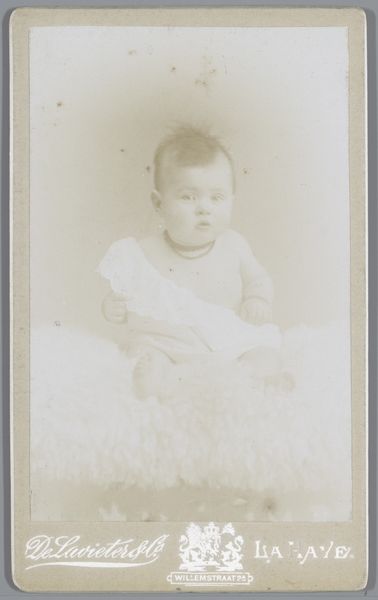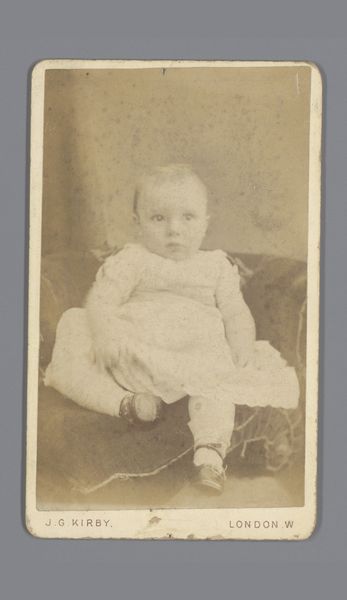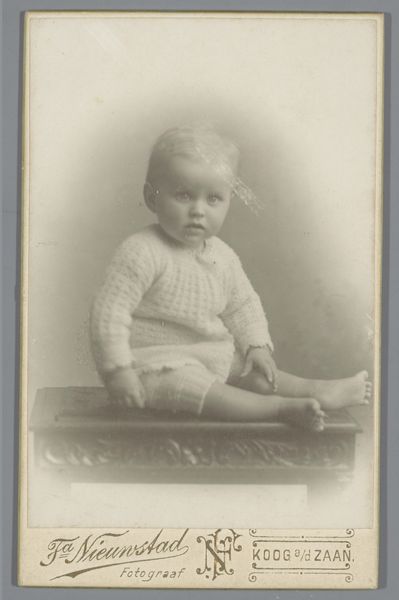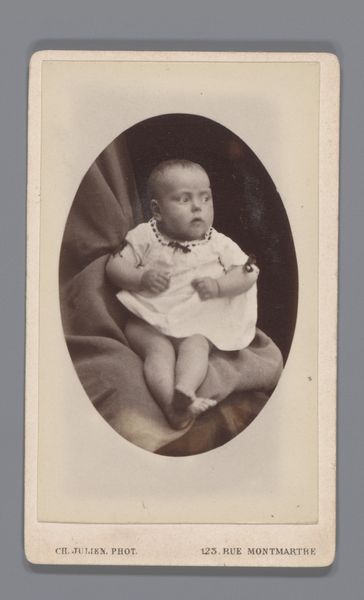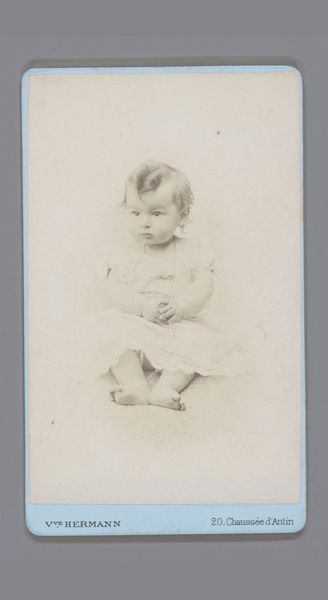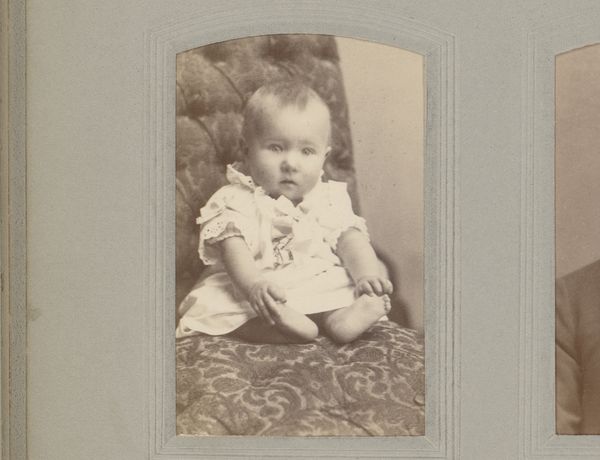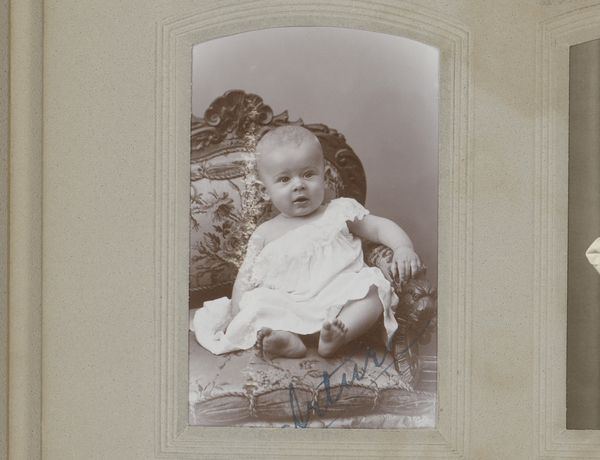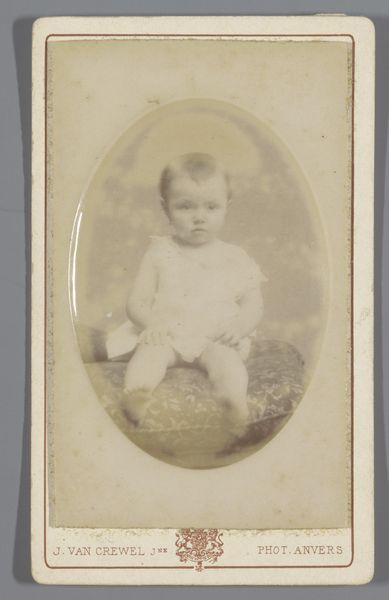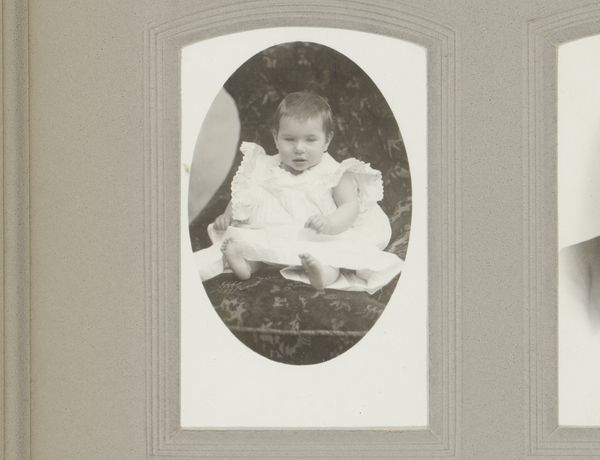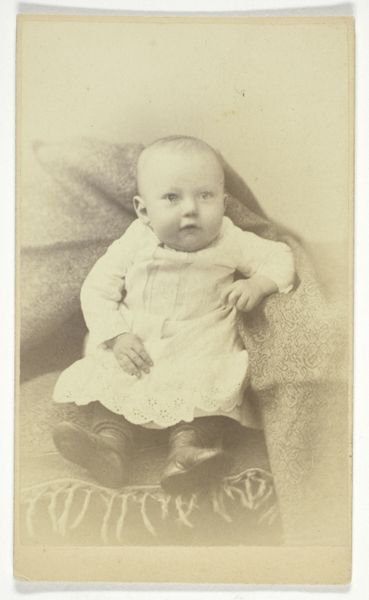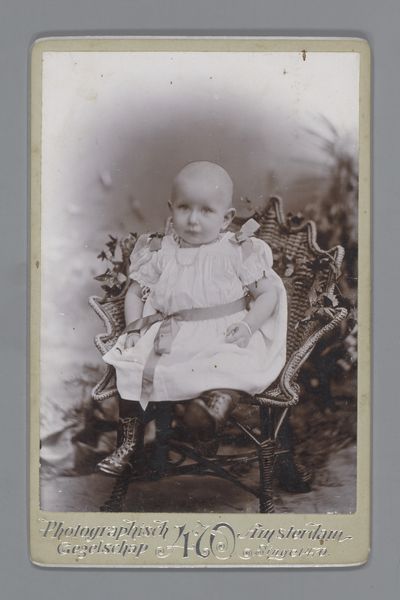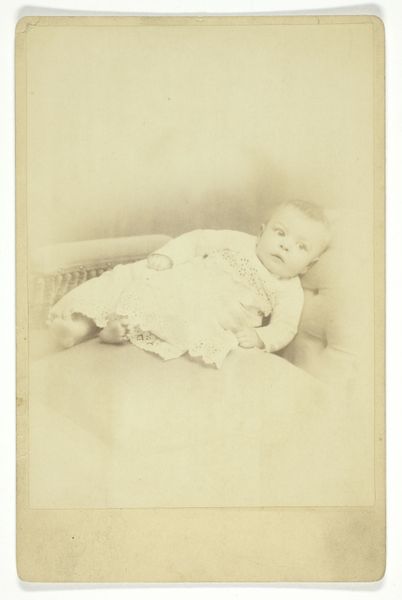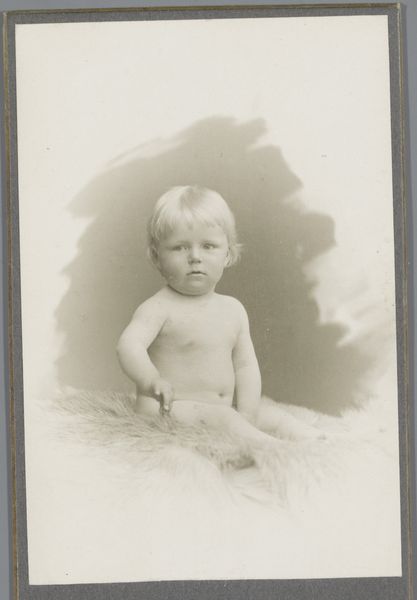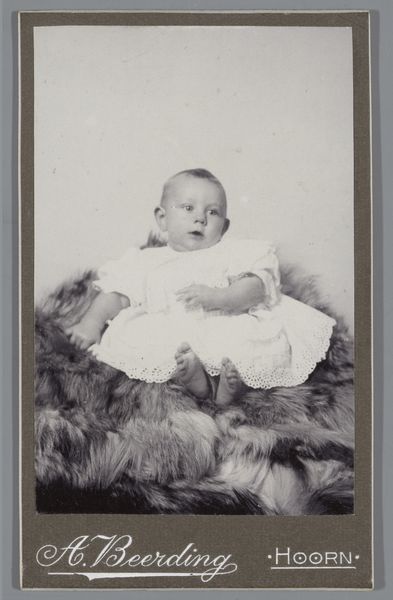
paper, photography, gelatin-silver-print
#
portrait
#
still-life-photography
#
paper
#
photography
#
gelatin-silver-print
Dimensions: height 102 mm, width 64 mm
Copyright: Rijks Museum: Open Domain
Franciscus Antonius Gerardus Blöte made this small photograph of an unknown baby, likely in the late 19th or early 20th century. The baby's pose, lying on a blanket with its head raised, is typical for infant portraiture of the time, reflecting a broader cultural interest in capturing childhood innocence and vulnerability. In the Netherlands, as elsewhere in Europe during this period, the rise of photography coincided with evolving ideas about family, domesticity, and the role of children within society. Photographic studios, like Blöte's in Hoogezand-Sappemeer, became important social institutions, offering families a means of documenting their lives and projecting an image of respectability. The very act of commissioning a portrait suggests a certain level of economic stability and adherence to bourgeois norms. Understanding this image fully requires delving into the history of photography, Dutch social history, and the cultural norms surrounding childhood in the late 19th century. Resources like local archives, genealogical records, and studies of Dutch family life could shed light on the identities and social contexts of both the photographer and the subject.
Comments
No comments
Be the first to comment and join the conversation on the ultimate creative platform.
